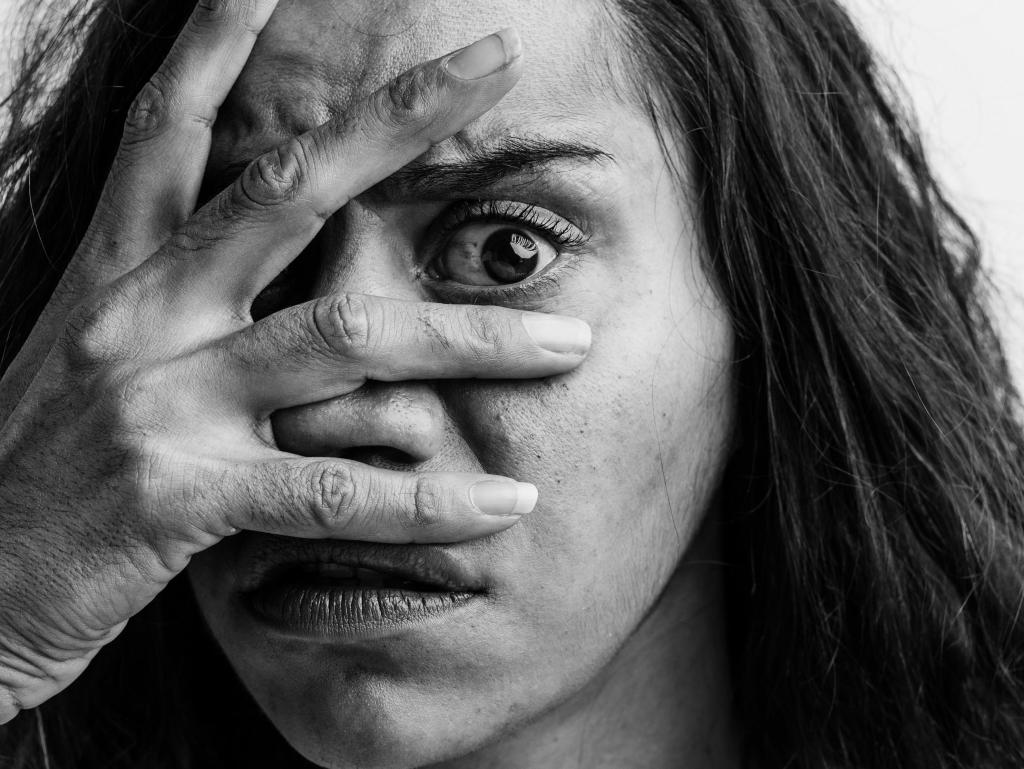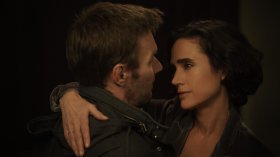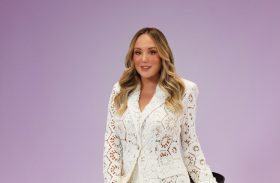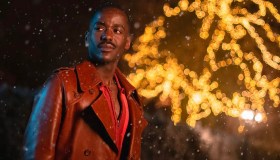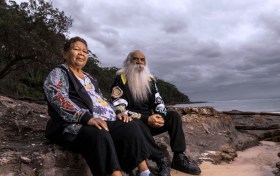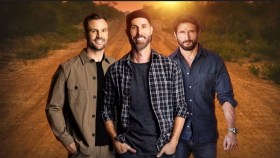Image: ‘You chose THAT film?’ South Australian actor Natasha Wanganeen is on of the ‘faces of the festival’ for ADLFF 2018. Image supplied.
George Miller voted for Bad Boy Bubby, Muriel’s Wedding and The Sentimental Bloke. David Stratton picked Newsfront, Gallipoli and Blessed, while Margaret chose Samson & Delilah and The Babadook. Brigit Ikin named Sherpa and Sweetie in her list; Liz Watts picked Chasing Asylum and My Brilliant Career.
These are just some of the high profile supporters of the Adelaide Film Festival’s campaign to get audiences voting for their Top 3 Australian films – fiction or documentary – of all time. The #YouMustSee campaign opened on Monday and will run online until 30 July. The voting process is quick and easy, with simple drop-down boxes suggesting titles from an almost comprehensive list of films compiled by the National Film and Sound Archive. Twitter is abuzz with the #YouMustSee hashtag; everyone loves to make a list, especially when it’s as subjective as this.
Amanda Duthie, Artistic Director of the Adelaide Film Festival since 2012, was fairly burbling with pleasure when she spoke to ScreenHub about the fun she’s having with the campaign. ‘It’s giving all of us such pleasure because the response since Monday has been wild – crazy good,’ she said. ‘The website’s taking in hundreds and hundreds of votes from around the country already and we all get a little endorphin jolt every time another one comes in, and we think, oh yeah of course, THAT film!’
It’s not exactly a new idea. Competitions for Australian’s favourite films are a commonplace, especially around AACTA Awards time. But this particular campaign will result in actual screenings.
The winning titles (and perhaps, according to Duthie, a few runners-up) will be screened at the Adelaide Film Festival in October. This will form a unique audience-curated strand of programming, and will also, in the process, mean a long list of Australian films, both popular and obscure, will be remembered, discussed and appreciated afresh. It’s no wonder the campaign seems to have brought together the entire Australian screen industry, including the NFSA, AFI/AACTA, SPA, Screen Australia, SBS, ABC, ACMI and a salad of other screen-related acronyms (AWG, AIDC, AFTRS).
The value of having a list of three, according to Duthie is that ‘with three, you can have a Best, a guilty pleasure, or you can have something that you saw when you were a teenager and it touched you and stayed with you forever.’ She said the voting data and spread of titles will be made available to the industry after the campaign closes, and that ‘Hopefully this will encourage producers and distributors to dig back through the catalogues and see what can be reprised for new audiences.’
Few would deny the central problem at the heart of the Australian film industry is one of connecting audiences to films. Duthie didn’t want to talk about this directly, but she would say that the #YouMustSee campaign is ‘about allowing the audience to really get engaged and muse and debate about what the best or favourite Australian films over the last 112 years.’ She hoped that it would be the audience complement to the #MakeItAustralian Campaign which ‘has been very industry focused to support and build a thriving and sustainable Australian screen industry.’
While it’s easy to make a usual suspects list of popular and acclaimed Australian films that will probably make the final list (Walkabout, Wake in Fright, The Castle, Strictly Ballroom, perhaps?), the hope is that the voting will reveal a wider and more intriguing spread. Ideally, for Duthie and the festival, it will include some of the 37 feature films that the Adelaide Film Festival Fund has financed since its inception in 2005. As the first Australian festival to invest directly in film production, this fund continues to make groundbreaking cinema, with past highlights including Ten Canoes, Snowtown, 52 Tuesdays and Sweet Country.
‘We were almost the first film festival in the world to have an investment fund,’ said Duthie, ‘and we are literally very invested in enabling and making Australian films. The slate of investment fund films is pretty incredible – we’ve worked with so many filmmakers, from Warwick Thornton to Rolf de Heer and Sarah Watt and David Gulpilil. I’m sure some of that work will find its way to the lists.’
The inclusion of feature documentaries in the voting process is also a key part of the story, though whether any docs will make the final three remains to be seen. Said Duthie, ‘Most film festivals would acknowledge that factual films are incredibly popular for audiences, and also for broadcast schedules. Documentary needs some space to be lauded alongside the feature fiction.’ Asked for some suggestions, she named box office hits like Cane Toads, Rats in the Ranks, Mrs Carey’s Concert and Year of the Dogs.
If you’re neurotic (like me), it’s excruciating to choose just three films from a treasure trove of riches, until you remember that it’s not a test, it doesn’t really matter, and the point here is to highlight some films that should get a festival screening to celebrate their enduring value.
Here at ScreenHub, we had a quick brainstorm and here are our very personal picks.
David Tiley, Editor, ScreenHub
- The Tracker (Rolf de Heer, 2002)
- Mad Max: Fury Road (George Miller, 2015)
- Sherpa (Jennifer Peedom, 2015)
Rochelle Siemienowicz, Journalist
- Bad Boy Bubby (Rolf de Heer, 1993)
- Floating Life (Clara Law, 1996)
- Return Home (Ray Argall, 1990)
What about you?
Vote now for your Top 3 #YouMustSee Australian films, and go in the running to win a Gold Pass to the Adelaide Film Festival (10 – 21 October 2018).
